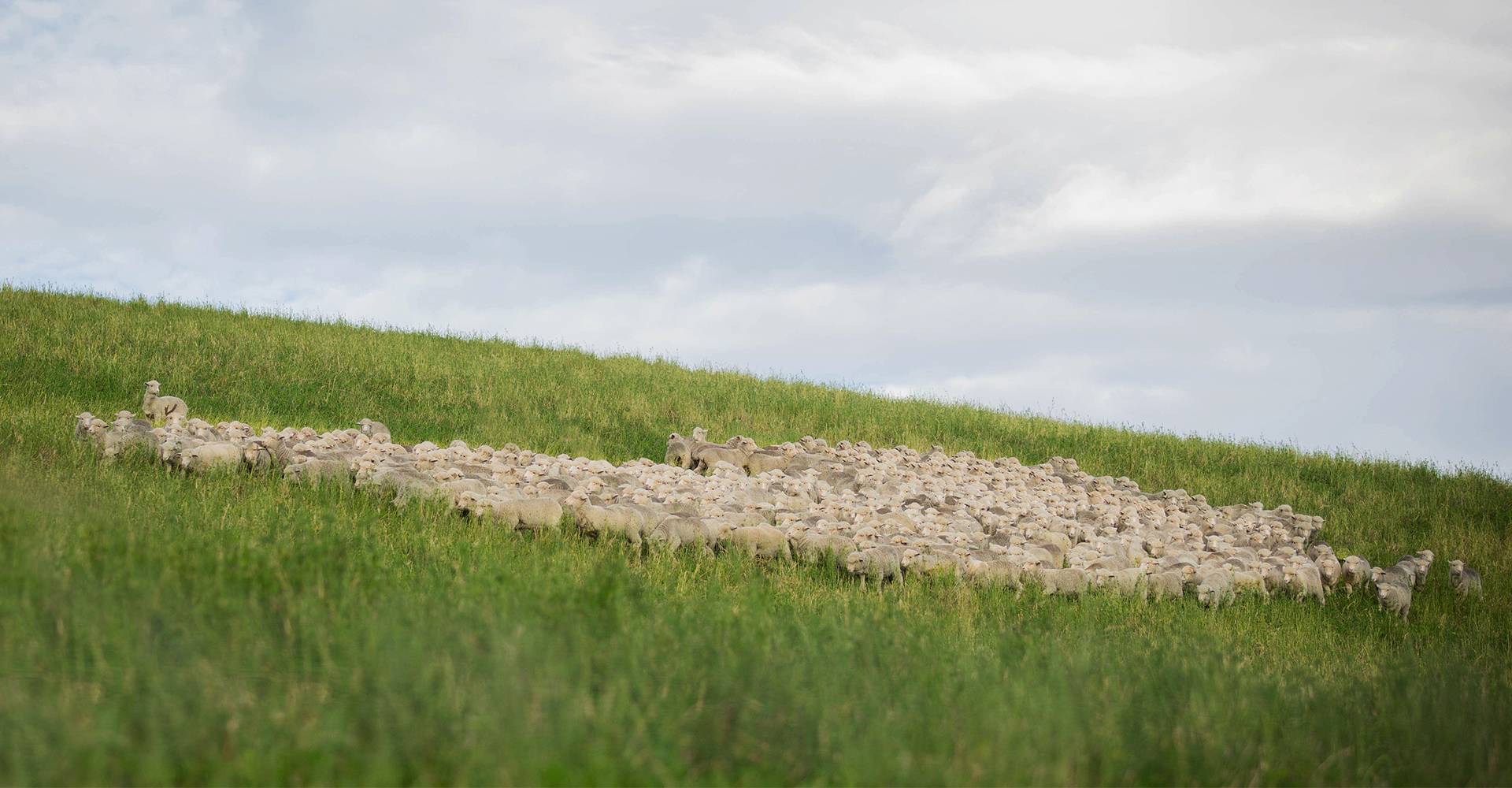You’ve probably noticed that a lot more clothes come with certifications and standards in tow these days. Why? Because it’s a way for brands to verify that they’re operating as ethically or sustainably as they say they are, which is great for customers. It’s also a way for brands to ensure that their values are upheld in the parts of their supply chain that they can’t see every day. The certifications a brand has will vary according to their core values and there are lots (hundreds!) to choose from, so allow us to take you through ours.
ZQ
ZQ is a standard operated by the New Zealand Merino Company, created specifically for wool. All ZQ growers must abide by the standard’s main values which cover animal welfare, environmental sustainability, fibre quality, traceability to source, and social responsibility. Regularly reviewed and updated, the ZQ standard guarantees a high level of ethics across all the main values.
Sheep are not mulesed and they are reared according to the five freedoms (free from thirst, free to live naturally, free from discomfort, free from distress, and free from disease). The Five Freedoms, developed in the 1960s, set the bar for animal welfare and have been instrumental in protecting animals. However, how the world thinks about animal welfare has, of course, evolved over time and now a new standard, called the Five Domains has been developed which builds upon the Freedoms to be actively positive rather than just minimising the negative. The Five Domains focus on: nutrition, physical environment, health, behavioural interactions, and mental state. As we evolve our own animal welfare policy, we will be using the Domains as our foundation.
Back to the here and now, under ZQ, growers must create a Land Management Plan to create a healthy environment for future generations, wool can be traced back to the grower, and it’s hand selected for quality, which is generally much higher anyhow because of the care ZQ farmers put in at every stage. The treatment of people is just as important as the treatment of animals under ZQ standards so everything from fair pay and safe shearing equipment to proper training are ensured.
To make sure that ZQ growers stay committed and follow the requirements of the standards, their farms are audited on a regular basis by a third party Certified Accreditation Body called Control Union. If an audit uncovers improvements that need to be made, farmers are given certain timeframes to carry them out in, and audits will be stepped up during that time for more oversight.
Take a tour of Glenthorne Station, the ZQ farm from where we source over 90% of our merino.
ZQRX
As you may have guessed from the name, ZQRX comes from the same organisation as ZQ. It stands for the ZQ Regenerative Index and it builds upon ZQ standards by adding regenerative requirements, which go beyond sustainability and focus on actively improving the land. The idea is that farmers give more than they take by working in harmony with nature. When farmers practise regenerative agriculture, they aim to build soil health, increase biodiversity, improve water cycling and water quality, and drawdown carbon from the atmosphere. All of these things are crucial for tackling the climate crisis.
Because farms are so individual depending on where they’re located, there aren’t set rules for what regenerative agriculture looks like, but some of the actions that farmers and growers can take include protecting and planting native species, taking care not to overwork the soil, and improving grazing and allowing the land to ‘rest’ in between. There is no finish line, instead ZQRX farmers are committed to a constant, evolving relationship with the land.
Organic cotton
Over the last century, cotton farming has become a toxic business. As demand grew, farmers began to use chemical pesticides, herbicides, and fertilisers at higher and higher rates as well as dedicating more and more land to growing only cotton, therefore decimating crucial biodiversity in cotton growing areas. Depending on the region cotton can also require a lot of irrigation which can cause issues in water scarce areas. This intensive way of growing cotton has come to be known as ‘conventional’ cotton and it can degrade the soil, reduce biodiversity, and harm farmers and the environment with the use of chemicals, so we source organic cotton wherever possible.
Organic cotton is grown without the use of hazardous chemical pesticides and fertilisers and instead farmers use more natural methods such as composting, crop rotation to ensure that one crop puts back nutrients that the previous one took, and covering cropping – planting nutrient-dense crops in between harvests to restore the soil. Just like ZQ farmers, organic farmers are audited to make sure that they are growing according to the organic principles which are healthier for them and better for the environment.
BCI Cotton
Where we can’t source organic cotton, we turn to BCI, which stands for the Better Cotton Initiative. As the name suggests, BCI cotton is designed to be better for everyone, whether that’s smallholders and farming communities or suppliers and brands. BCI supports farming communities socially, environmentally, and economically. Its work includes helping farmers phase out highly hazardous pesticides, teaching better water and soil stewardship, supporting the enhancement of biodiversity, promoting fair pay and equal opportunities, and providing better access to markets. This holistic approach means manageable but important changes and cotton that is better on all levels.
B Corp
We became a certified B corporation, or B Corp for short, in 2021. B Corps are businesses that meet high standards of social and environmental performance, transparency, and accountability. They are scored across the following categories: governance, workers, community, environment, and customers. That means that everything from our overall mission, transparency, the health and wellbeing of our employees, and community engagement, to our impact on the environment, and the way we treat our customers was scored. We came away with a score of 83.5 and our highest scoring areas were in the environment and community impact.
A key element of B Corp certification is that a company must apply to be recertified every three years, so it can’t just make a good initial impression and then slide into bad habits. A B Corp has to continually evolve and show that it balances business with positive impact in every act it takes.
Although many of these certifications are relatively new, they simply verify the ways in which we’ve been working from the very beginning. To know more about our history and why we’ve always been led by ethics, read this enlightening piece by our founder and CEO, Peri Drysdale.
















